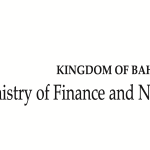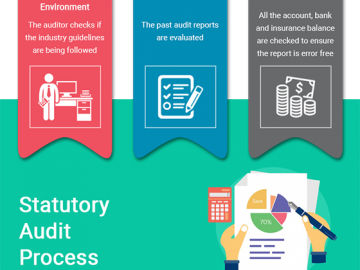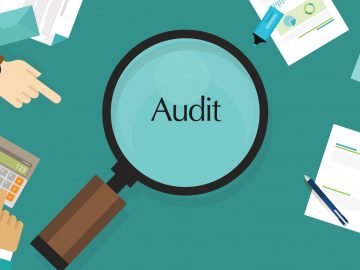
CbCR Reporting Requirement Bahrain

Bahrain has always made concentrated efforts towards establishing its position as a regional business hub and has been able to attract significant foreign direct investment from Saudi and MENA region. Adoption of global regulations and best practices have been at its core. Kingdom of Bahrain embraced the Base Erosion and Profit Shifting Inclusive Framework (BEPS IF) on 22 Dec 2019, as part of signing the Multilateral Competent Authority Agreement for Country-by-Country Reporting (CbCR MCAA). This provides a standardized and efficient mechanism to facilitate the bilateral exchange of Country by Country reports with members of the framework and authorities. Since then, Bahrain has committed to implement the four minimum standards of the BEPS Action Plan, (i.e., Actions 5, 6, 13, and 14) to further consolidate its regulatory framework. CbC reports contain information on the allocation of revenues, profits, and other data of multinational entity (MNE) groups.
With this inclusion, Bahraini authorities now have a mechanism to provide CBC reports of Bahrain headquartered MNE groups to the tax authorities of all signatory jurisdictions in which such MNE groups operate. Bahrain’s authorities may also opt to receive, from signatory jurisdictions, CbC reports of foreign headquartered MNE groups with operations in Bahrain. The authorities are now working on having a detailed legal framework and domestic laws around the CbCR Reporting Requirements framework.
Although the detailed domestic framework is yet to be established, however, it would be along the same lines as international guidelines covering CbCR requirements (either filing or notification) for entities that are tax resident in the Bahrain and that are part of a multinational group with consolidated revenues equal to or exceeding BHD 341 million (approx. EUR 764 million or USD 858 million) in the preceding financial year. CbCR Rules and Requirements would be applicable to ‘financial reporting years’ starting on or after January 1st, 2019. Accordingly, the CbC report must be submitted by applicable CbCR reporting companies in Bahrain as per timelines mentioned in detailed guidelines that are yet to be issued by Bahrain authorities.
Any affiliated entity of a Multinational Enterprise (MNE) that is tax resident in the Bahrain but is not the Ultimate Parent Entity (UPE) is expected to prepare and submit the CbCR on behalf of the MNE, if certain conditions are met. However, where the tax resident entity in the Bahrain is not an UPE, a notification in lieu of an actual filing would satisfy the CbCR requirements, as long as the MNE has filed the CbCR in the UPE’s tax jurisdiction or in a Surrogate Parent Entity’s (SPE) tax jurisdiction, and certain conditions in relation to automatic exchange of the CbCR, by such tax jurisdictions with the Kingdom of Bahrain are fully met. Any affiliated entity of an MNE that is tax resident in the Bahrain is expected to notify the Competent Authority as mandated by Bahrain MOFNE (i.e. the Bahrain Ministry of Finance and National Economy), whether it bears the capacity of an ultimate or surrogate parent entity (SPE), no later than the last day of the financial reporting year of such MNE. If such entity is not a UPE or SPE, it is expected to notify the Competent Authority of the identity of the entity submitting the CbCR and its tax residence, no later than the last day of the financial reporting year of such MNE.
The CbCR reporting requirements provide the much-needed transparency and visibility on aggregate jurisdiction-wise information relating to the global allocation of income, taxes paid, and certain indicators of economic activity. The CbC report also provides a comprehensive list of the MNE group’s Constituent Entities (CEs) and their business activities. A focal area for CbCR is to also facilitate the automatic exchange of CbC reports between tax authorities, with a view to promote increased information sharing. Almost 90 countries have adopted CbCR so far, and there are over 2,400 bilateral relationships for the exchange of CbC reports.
The Bahrain CbCR domestic framework, which is work under progress, is expected to grant broad powers to the Bahrain MOFNE, in the context that it may request additional information from any reporting entity, to determine the accuracy and completeness of the information reported, and to validate the reasons for any missing information, including the right to enter the business premises of the reporting entity to obtain the aforementioned information.
Bahrain embracing CbCR rules is an important milestone – sending a strong message to the international tax community about their commitment to adopt new legislation to combat BEPS and continue to adhere to international laws and regulations. For most MNE groups operating in the Bahrain, the framework is expected to provide flexibility, allowing for CbC reports (FY19 and onwards) to be filed in the Bahrain For MNE groups with UPEs and/or APEs outside the Bahrain, the new rules would introduce an additional notification requirement for CEs based in Bahrain. The most significant impact will be felt by qualifying Bahrain-headquartered MNE groups that will be required to prepare and file a CbC report for the first time, as a result of the new rules once the domestic framework is established. Hence it is recommended, that all qualifying MNE groups review their position and ensure compliance, particularly given the hefty penalties for non-compliance. The framework is also expected to entail a requirement to retain effective records for 5 years following the date on which the CbCR is submitted to the Competent Authority. Failure to comply with the CbCR requirements is likely to expose the Bahrain taxpayers to stringent and varying levels of administrative penalties.
Bahrain MOFNE is expected to release detailed local laws, guidance and framework on CbCR requirements in the coming months on several key areas, such as details of an online filing portal, notifications and CbC report filing process, and final XML specifications, if different from the OECD XML scheme. Therefore, it is strongly recommended to seek professional advice for fully comprehending the above requirements and ensure regulatory compliance.
































